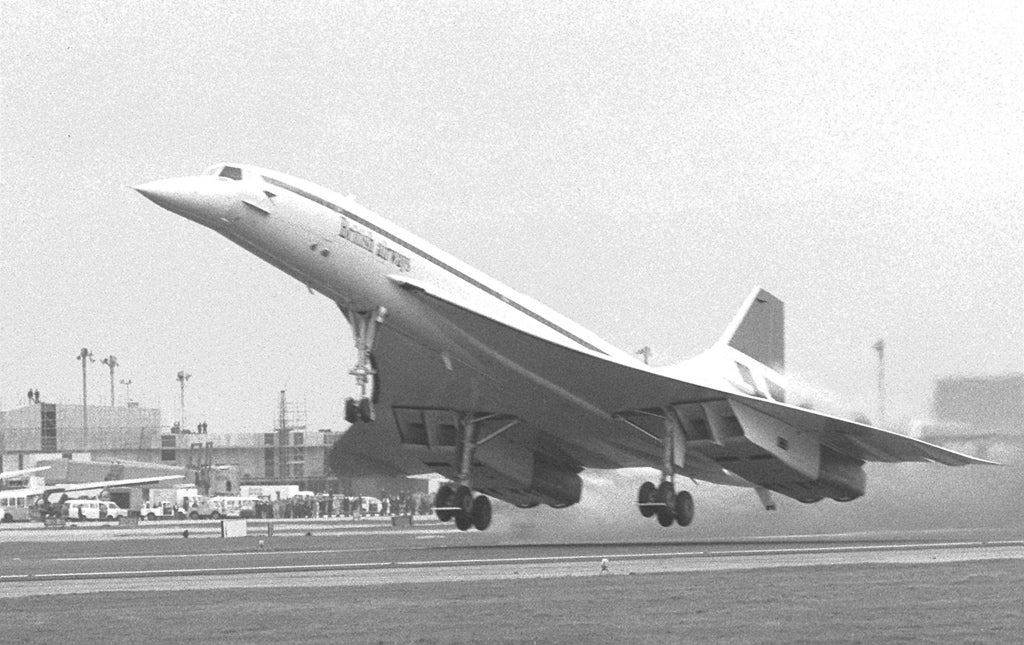The Concorde made history. Our skies are poorer without it
This aeroplane was testament to the boldest part of human nature


From time to time, when I'm not complaining about how hot it is, or men wearing shorts in the office, or people saying “invite” instead of “invitation”, or restaurants charging supplements on a set menu, I pause to reflect on what a privileged life I've led. In the course of my career, I've attended major events, met the rich, the famous, and the powerful, sat with Nelson Mandela for lunch, and been granted a glimpse of the inner workings of our major institutions.
But one memory stands out, and today it was brought back to mind when I discovered it was 13 years to the day that a Concorde crashed on take-off in Paris, killing 117 people. This was also the moment when the fate of this magnificent aeroplane, the 20th Century's greatest example of form and function, was effectively sealed, leading to my invitation, three years later, on Concorde's final passenger flight from New York to London.
In truth, it was something of a circus, with captains of industry, celebrities, and media figures among the passenger list, and Piers Morgan and Jeremy Clarkson continuing their handbags-at-dawn spat over the champagne and foie gras. But it was, in every sense, a moving experience, and I felt immensely honoured to be on board.
As we made our final approach into Heathrow, flanked by two other Concordes, we passed over what was then the Millennium Dome. I remember contrasting these two symbols of civic pride: one a beautiful manifestation of man's desire to use technology and design to change the world, and the other an overblown, culturally vacuous iteration of hubris that served no one other than a political elite. One was about to die because it was not economically viable (the Paris crash had exposed the financial burden of maintaining the fleet), and the other had been subsidised by central funds.
Of course, Concorde itself was hardly transport for the masses, its fares beyond the reach of all but the fabulously wealthy. But that's not the point. Aspiration is part of human nature. We need to dream. We need to believe that man can conquer new frontiers, whether it be to cure cancer or to invent revolutionary means of communication. Or, indeed, to shrink the world by going further and faster. Concorde represented that battle in a wonderful way: it didn't matter that very few people got to use it.
And now what do we have in the way of ground-breaking means of transport? The planned HS2 rail link. Bound to be vastly more expensive than we've been told, certain to be later than promised, and in the end it will get us between Manchester and London in an hour-and-a-half. Concorde took us from London to New York in less than three hours!
The plane, piloted by a tearful Captain Mike Bannister (I'm not kidding: proper tears were shed by many on board) into Heathrow 10 years ago, lies rusting in its ancestral home in Bristol. Campaigners are still trying to raise money to create a suitable resting place for this plane. It would shame us if this important piece of our heritage was not properly preserved. If only so that we could show Prince George's generation what was once possible.

Join our commenting forum
Join thought-provoking conversations, follow other Independent readers and see their replies